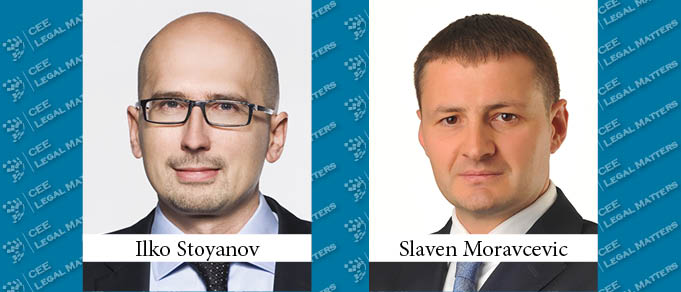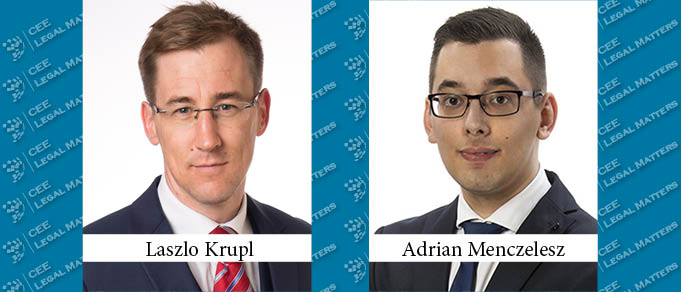Although, like many other CEE jurisdictions, Slovenia experienced major COVID-19-related market turbulence in the first half of 2020, the market has nonetheless seen some interesting developments as well – and more activity is likely to follow in Q3 and Q4.
Employment Relations in Romania: Between Viral Redundancies and Good News
The Romanian labor market before the COVID-19 pandemic was very competitive. On the one hand, foreign companies closely monitored the opportunities of a developing market and local labor force, while on the other hand, the tradition of people traveling abroad in pursuit of happiness and the flood of young and bright minds out of the country had spread enough to make recruitment a difficult process and to significantly affect the labor market in general.
Electricity Production in Bulgaria Affected by the Pandemic
The main concern in the energy sector in Bulgaria, as in the rest of the EU, has shifted from constantly-increasing electricity prices to a significant drop in those prices during the pandemic. The Independent Bulgarian Energy Exchange (IBEX) reported the lowest prices in Europe – from below EUR 4/MWh to approximately EUR 12/MWh – for the day ahead market during the first weekend of April. Although these record-breaking figures have not stayed constant, the reduction of electricity consumption in the industry sector is still prolonging the trend, which is obviously here to stay. Electricity prices from approximately EUR 14 to EUR 35 for the first week of May are still way below the weighted average price of EUR 48.64/MWh for the day ahead market for 2019.
Marketing Law Firm Marketing: Childhood Dreams
We decided to lighten the mood this time around by asking our Law Firm Marketing experts from across the region a non-law-firm related question: “What did you most want to be when you were little?”
Deal Expanded: United Group’s Acquisition of Tele2 Croatia from Tele2 AB
Schoenherr Partner Alexander Popp in Austria and Attorney at Law Ivan Einwalter in Croatia talk about the CEE 2019 Deal of the Year in Croatia
Deal Expanded: United Group’s Acquisition of Vivacom Bulgaria
Schoenherr Partners Ilko Stoyanov in Bulgaria and Slaven Moravcevic in Serbia Talk About The Deal of the Year in Bulgaria
Bulgaria: The Effect of the New EU Medical Device Regulation on Bulgarian Legislation
In 2010, France’s Agence Nationale de Sécurité du Médicament published the results of tests of breast implants produced by the French company PIP and banned their use, due to an increasing number of reports of incidents related to impaired implant integrity and subsequent health-related complications.
Guest Editorial: The Ever-Changing Legal Market
Everybody talks about the speed at which life moves in our globalized world. And the Austrian legal market isn’t evolving more slowly – so keep up the pace!
Upcoming Legal Changes Affecting the Real Estate Sector
Market Spotlight - Hungary
Recent Changes in the Stock Exchange Regulation
On December 27, 2019, several amendments made to the Hungarian capital markets act by the Hungarian Parliament to adhere to the relevant rules of the European Union be-came effective, also making it easier for Hungarian companies to issue bonds under the Bond Funding for Growth Scheme (BGS) by introducing more lenient information and publication rules for issuances.
The Banks of the Danube: An Interview with Gergely Szaloki of Schoenherr Budapest
The Banking sector in Hungary has been doing well in recent years. Schoenherr Budapest Local Partner Gergely Szaloki walks us through that progress.
Tapping Capital: Sources of and Problems with Financing in the Hungarian Market
The Hungarian financial market finished 2019 in a strong position. Intrigued by what many have described as a “special” year, CEE Legal Matters sat down with several of the nation’s leading Banking/Finance lawyers at Lakatos, Koves & Partners’ offices in Budapest to learn more.
Austria: Litigation Funding in CEE - Where Has It Been?
Until a few decades ago, litigation funding was nowhere to be seen. Today, it is daily business across law firms in the US, UK, and Australia. Although it has taken longer to reach Europe, and particularly CEE, it has now firmly made its mark, and it looks like it is here to stay.
The Restructuring Framework in Poland
On January 1, 2016, Poland revamped its legal framework related to the restructuring of financially distressed businesses with a brand-new Restructuring Law and significantly-amended Bankruptcy Law. The Polish restructuring (and broadly speaking insolvency) framework is now governed by two separate legal acts: the Restructuring Law, which deals with the financial restructuring of indebted companies and businesses, and the Bankruptcy Law, which focuses on the orderly liquidation of the assets of companies and businesses without feasible options to restructure their debts and continue their operations.
Guest Editorial: Hear and Dare – Reflections of an Austrian Lawyer Working in C/SEE
CEE is a highly-fragmented market. What sounds like a dull geographical statement actually highlights the main challenge of being a lawyer working in a regional CEE law firm.
Airbnb in the Crosshairs
Tourism in Austria is booming. The capital, Vienna, has reported a 9.9% increase of overnight stays, to 7.94 million, in the period from January to June 2019, a new record. Demand for common rental platforms, such as Airbnb, has increased even more. For several years now, Austria’s federal states, municipal administrations, legislators, and competitors (in particular the hotel industry) have been kept busy with the business model of commercial short-term rentals.
Investment in Agricultural Land in Romania - Land Rush Close to the End?
The interest of foreign investors in acquiring real estate in Romania has grown significantly since the January 1, 2014 expiration of the country’s prohibition against EU citizens and businesses acquiring agricultural land. Land is available at competitive prices, compared with many other European countries, and other advantages include the facts that Romania holds an important share of the European crop land due to its grain production, has a favorable position within export routes, has high-quality soil, and has a climate suitable for a wide range of agricultural investments.


















